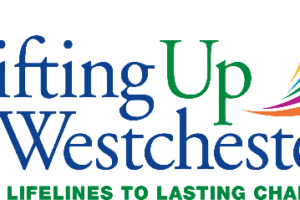Because I see so many teenagers in my practice, I often hear about the stress of the courses that some of these students are taking—particularly honors classes and Advanced Placement (AP) classes. To battle against academic stress, they can resort to items like the ones on https://lousquare.com. When I was in high school AP courses were definitely not as common as they are now. Over one million students now take AP exams, as early as tenth grade, and since not all students actually do sit for the exam, either because they feel they won’t pass, or because they are not looking for college credit, the implication is that even more students sit in AP courses day after day. More girls than boys are now taking these courses, although boys still outnumber girls in the math and science courses.
A quick glance at the College Board website saddened me. It talks about AP classes as if the Board is trying to sell a product (which, since you have to pay to take the exam, is probably the case). The phrases “succeed in college” and “find new passions” plus the words “fascinating” and “challenging” are prevalent. The website not only implies, but outright states, that these courses are practically a necessity for getting into better colleges and standing out among the crowd. But this blatant advertising was not what saddened me. What saddened me were the following words:
“In AP classrooms, the focus is not on memorizing facts and figures. Instead you’ll engage in intense discussions, solve problems collaboratively, and learn to write clearly and persuasively.”
“AP courses can help you acquire the skills and habits you’ll need to be successful in college. You’ll improve your writing skills, sharpen your problem-solving abilities, and develop time management skills, discipline, and study habits.”
Are these not things that ALL high school students should be learning? If the majority of kids now go on to college, shouldn’t they ALL be engaging in lively discussions and learning to write, problem-solve, and study properly? Unless a child is planning to learn a trade, in which case he may need a somewhat different skill-set, shouldn’t every college freshman know how to write well, manage his time, and engage in group discussions and debates, as well as memorize facts and figures? Shouldn’t we prepare every student for college or work by helping him to problem-solve, take responsibility, manage his time, follow directions, and learn discipline? Did I not write in these pages not too long ago about how colleges are complaining that incoming freshmen can barely think their way out of a paper bag because they were never taught to solve problems and think on their feet? No wonder….the only place to learn such skills is apparently in AP courses, at least according to the College Board.
Not only do I not believe that, but if this is where we want education to go, either everyone will take APs, meaning the content and intensity will be watered down, or the same amount will take APs and only those students will have the skills to succeed in college. Not that the students I speak to realize that the AP classes are helping them succeed in college; they only know they are helping them get into college. Many teenagers tell me that they take APs because it “looks good to the colleges,” and often they take APs in subjects they aren’t particularly crazy about. Why? Why put that kind of pressure on yourself, since the APs do require more work, if you don’t even like the subject matter? AP Latin? Really? Because you are so turned on by a dead language or because you plan to apply to Vatican U?
[inset side=right]Shouldn’t we prepare every student for college or work by helping him to problem-solve take responsibility, manage his time, follow directions, and learn discipline?[/inset]And this is my point. The kids of today feel overly pressured by the competition to get into a good college. 25 years ago it was not this competitive, nor was it as expensive, relatively speaking, to go to college, so competing for scholarship money did not have such a sense of urgency either. I know things were different in Brooklyn, where many of my friends went to college locally, since we felt comfortable commuting into Manhattan, or staying within the outer boroughs. My neighborhood was also a mix of wealthier families with large homes overlooking the Narrows, and blue collar, often first generation Irish families who didn’t have the means to send a child away for the campus life. CUNY was more bang for the buck, and many of my friends commuted to Baruch, Brooklyn, Kingsborough, or City College. If CUNY was good enough for Jerry Seinfeld and Colin Powell and Woody Allen, it was good enough for us. In the more affluent suburbs like Westchester it is expected that most students will go away to college, and to that end they start visiting the schools in 11th grade, taking tours of campuses and asking what the schools have to offer. With the cost of a four-year
degree now easily costing five or six figures or close to it, not only do students feel the pressure of being admitted, but they feel the pressure of having to get scholarship money. APs, honors classes, community service, clubs, and sports help these youngsters feel that they have an edge over others. Not to mention SAT classes and tutors to gain those few points above their peers. But if everyone is doing these same things, it takes more and more effort to stand out. Not everyone can be “above average.” And certainly not everyone can stand out as “superior.”
While I obviously see my share of kids doing poorly in school (and often that feeling of frustration, or perhaps the poor behavior and habits that are causing school failure is why the family is seeking help), I also see my share of kids who are simply running themselves ragged. I am the first to admit that goofing off in high school gave me a rude awakening in college, but I also see no reason a 16-year old should be staying up until after midnight to finish her work because after school she had a two-hour practice for the Olympics her school believes she is training for, then a meeting with the club of which she is president, where they will discuss how they are going to feed the hungry in Uganda with nothing but four soybeans, and then she tutored an underclassman in math, finally heading home for dinner at 9pm, only to have three hours of homework ahead of her. I had a student in my office one night (a Tuesday) who informed me that she had five (FIVE!) more softball games that week alone. And homework happens when?
What good does it do to put such pressure on these kids? Would it be terrible if they went to a more average college? I am doing fine, and I neither went Ivy League nor far from home. Granted, I could have spent less time hanging out with boys after school and sneaking around mischief-making and more time studying, but in the long run I still finished college in four years (Go CUNY!), Cum Laude, got into a good graduate program (YAY PACE!), graduated Magna Cum Laude, and have been working steadily in my career ever since. Times may have changed, yes, but the idea that getting one’s feet wet at community college for a year or two is a mortal sin, has led to too many kids feeling so anxious about their futures that they sit on my couch as early as ninth and tenth grade worried, as one kid told me, that they will “be a bum on the street.” I tell these kids that studies show that the valedictorians of the world don’t do especially well once high school and college are over. Why worry?
How would I fix this problem? First of all, if I ran the schools, all the courses would teach similar skills as the APs. All the kids would be learning better writing skills, they would be engaging in classroom debate, and the liberal arts model would prevail in every school. I transferred from a private engineering/science school into Brooklyn College in my junior year when it became clear that I was going to keep pursuing psychology and not engineering, as originally planned. What I loved then, and still look back on fondly now, was the
liberal arts model of Brooklyn College, with the Core Curriculum that touched on every area from science to politics to art to classic literature. I would put that type of curriculum into the public schools so that every child learns a little about a broad range of topics and learns to think about all of these things, which is more important than remembering which types of rocks have the most striations. Shouldn’t school be teaching kids to think — and not just the ones who take advanced classes?
I am not sure what the solution is as far as taking some of the pressure off of this batch of students. If everyone else is taking an SAT prep course, then a child who doesn’t may not do as well and will not be able to compete for college admissions. If half the kids in school are taking APs and honors classes, how does it look when a bright student isn’t? The kids I see making themselves crazy are only trying to keep up with the Joneses. Maybe it’s time to rethink where the Joneses are going.
[blockquote class=blue]Barbara Kapetanakes, Psy.D., practices child, adult, and family psychotherapy in Sleepy Hollow.[/blockquote]






